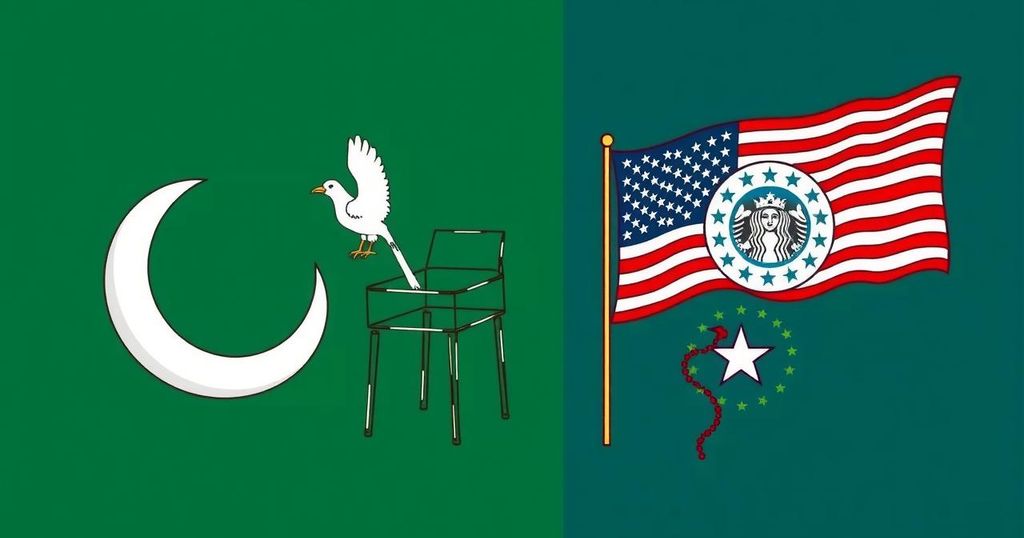The US elections could profoundly affect Pakistan’s economy, with differing implications depending on whether Donald Trump or Kamala Harris prevails. The US is a critical export market for Pakistan, but foreign direct investment remains low. Trump’s proposed tariffs may adversely impact the textile sector, while Harris’s approach could lessen trade barriers. Both candidates aim to increase American purchasing power, which might positively influence demand for Pakistani exports. However, significant domestic challenges persist in Pakistan, potentially complicating economic prospects.
The impact of the upcoming US elections on Pakistan’s economy could be substantial, contingent on the policies of either presidential candidate, Donald Trump or Kamala Harris. Both candidates have articulated plans aimed at enhancing the economic welfare of middle-income groups while supporting businesses, which directly influences Pakistani exports and investment. The United States constitutes nearly 20% of Pakistan’s total exports, emphasizing its role as a pivotal market. However, US direct investment in Pakistan remains limited, representing only 4% of total foreign direct investment as of FY24. The policies from the forthcoming administration could dictate the dynamics of these trade relations significantly. Trump’s economic stance includes high tariffs on imports from certain countries, with potential repercussions for Pakistan’s textile and apparel sectors. Conversely, Harris appears inclined towards a more diplomatic approach regarding tariffs, possibly resulting in minimized trade barriers for Pakistan. The economic relief strategies proposed by both candidates, focusing on increasing Americans’ purchasing power, could induce higher demand for Pakistani textiles, thereby benefitting the nation economically. Corporate tax policies also present a contrasting landscape; where Harris’s proposal may create hurdles for US investment, Trump’s reductions might increase domestic production and diminish import demand. The trade relations with China, influenced by the US-China trade war, could also create opportunities for Pakistan if US administrations enact favorable trade measures. However, unless Pakistan addresses its domestic challenges—such as ensuring security and functional Special Economic Zones—these opportunities may remain elusive, limiting Pakistan’s role as an attractive alternative for investment.
The relationship between the United States and Pakistan is complex, with significant economic implications tethered to the political landscape in the US. US trade policies greatly influence Pakistan’s economic health, particularly its export capabilities. With the US being a major importer of Pakistani goods, understanding the candidates’ proposed economic strategies is crucial. In addition to exports, direct US investment plays a vital role in the broader economic context. The anticipated foreign and tariff policies of the forthcoming US administration will likely shape the future of Pakistan’s relations with its key trading partner.
In conclusion, the upcoming US elections hold considerable stakes for Pakistan’s economy. Depending on whether Trump or Harris assumes office, the regulatory environment governing tariffs, taxation, and investment could drastically shift. While both candidates aim to support middle-income groups in the US—potentially enhancing demand for Pakistani textile products—domestic challenges in Pakistan may impede its ability to capitalize on these opportunities. Ultimately, Pakistan’s economic trajectory hinges not only on US election outcomes but also on its internal reforms and investment environment.
Original Source: www.dawn.com






